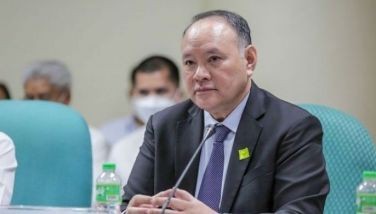Alcala: Rice shipments without NFA permit illegal
MANILA, Philippines - Agriculture Secretary Proceso Alcala maintained that all rice shipments to the Philippines without import permit from the National Food Authority (NFA) are illegal and should be confiscated.
Alcala made the statement as the Vietnam Food Association (VFA), the regulatory body for rice exporters in Vietnam, questioned the Philippine government’s requirement of permits for imported rice.
In a letter to the Bureau of Customs (BOC), VFA argued that an import permit from the NFA is no longer necessary because the quantitative restriction (QR) imposed on rice entering the Philippines expired last year and has not been extended by the World Trade Organization (WTO).
It said exporters to the Philippines thus only need to pay the higher tariff rate of 50 percent for shipments made outside of the minimum access volume (MAV) to ship.
But Alcala said VFA’s claim has no merit.
“All (rice) imports must have a permit from the NFA. If these arrive (in the country) without an importation permit, these must be seized,†he said.
“If we allow this, the quantitative restriction will be useless. We have the QR because we want to restrict the entry of (foreign) rice,†he added.
Citing Republic Act 8178 – the Act Replacing Quantitative Import Restrictions on Agricultural Products Except Rice with Tariffs, Creating the Agricultural Competitiveness Enhancement Fund and for Other Purposes – Alcala noted that the NFA has the sole mandate to grant import permits upon assessment of the domestic supply situation.
“The law must be repealed to discontinue this,†he added.
Under the Philippines’ commitment to the WTO, 350,000 metric tons of rice automatically gain access to the Philippine market under the MAV scheme either as government-to-government tender or as country-specific quotas.
Even so, the NFA determines the timing of the importation and schedules the application for importation. This is usually done in the first semester of the year in preparation for the lean months of July to August.
Importation made within the MAV is levied a duty of 40 percent, while imports outside the MAV are slapped a higher duty of 50 percent.
The country’s QR on rice expired in June 2012 but is still implemented as the government appeals for its extension until 2017 to prepare local farmers for the economic integration within the ASEAN region by 2015.
Alcala said that should negotiations for the QR bog down, the Philippines would be forced to conform to the reduction of duty on imported rice to 35 percent under the ASEAN Free Trade Agreement.
Settle NFA regulation issue
The Department of Trade and Industry (DTI), on the other hand, has been asked to act on questions on the power of the NFA to regulate rice importations.
Benito Salazar, counsel of importing firms Silent Royalty Marketing and Starcraft International that have been affected by the regulation, called on the DTI to look into possible violations of WTO-General Agreement on Tariffs and Trade (GATT) by the NFA.
Salazar said there is a need for the DTI to intercede and clarify the legal issue involving the “inability of the pertinent agencies to appreciate the significance of the June 2012 expiration of QR for rice.â€
“This simply means that import permits are no longer needed for rice to enter the country, provided the tariff rate of 50 percent is paid by the importer, subject to compliance with customs procedures,†he told reporters in Manila yesterday.
“It would be beneficial to all concerned for the finance and trade secretaries to look into the legal and practical ramifications of the NFA’s seizure orders, and share these with the Department of Agriculture (DA) and NFA. The Department of Finance (DOF) should be able to clarify the legal issues involved in the ‘tariffication’ of rice while the DTI can explain what sanctions we could be subject to by implementing restrictions that have already expired,†he added. - With Edu Punay
- Latest
- Trending





























